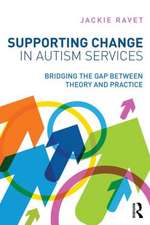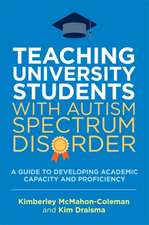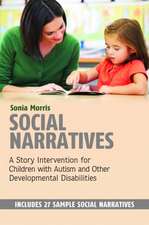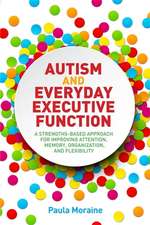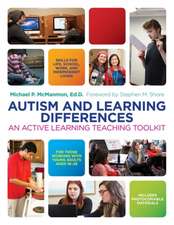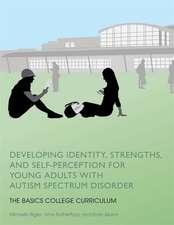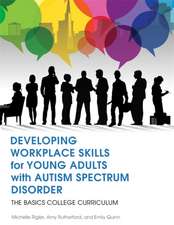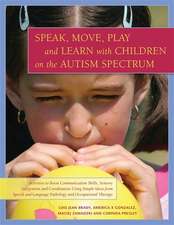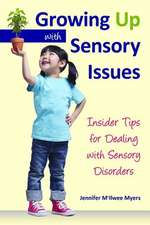The Essential Manual for Asperger Syndrome (Asd) in the Classroom: What Every Teacher Needs to Know
Autor Kathy Hoopmann Ilustrat de Rebecca Houkamauen Limba Engleză Paperback – 20 ian 2015
Vezi toate premiile Carte premiată
Preț: 114.50 lei
Preț vechi: 138.22 lei
-17% Nou
Puncte Express: 172
Preț estimativ în valută:
21.91€ • 22.74$ • 18.31£
21.91€ • 22.74$ • 18.31£
Carte disponibilă
Livrare economică 22 februarie-08 martie
Livrare express 11-15 februarie pentru 46.82 lei
Preluare comenzi: 021 569.72.76
Specificații
ISBN-13: 9781849055536
ISBN-10: 184905553X
Pagini: 224
Ilustrații: 101 black and white illustrations
Dimensiuni: 152 x 226 x 12 mm
Greutate: 0.32 kg
Editura: JESSICA KINGSLEY PUBLISHERS
ISBN-10: 184905553X
Pagini: 224
Ilustrații: 101 black and white illustrations
Dimensiuni: 152 x 226 x 12 mm
Greutate: 0.32 kg
Editura: JESSICA KINGSLEY PUBLISHERS
Notă biografică
Kathy Hoopmann is best known for All Cats have Asperger Syndrome, Inside Asperger's Looking Out and The Asperger Adventure series and the simplicity, charm and insight of these books has made them must-haves for explaining the diagnoses of Asperger's worldwide. Her work has won and been shortlisted for many literary awards including the Children's Book Council of Australia Award, the Childhood Wellness Moonbeam Award (US), and the Nautilus Award (US). She also has over 20 years classroom experience and has an intimate understanding of needs of teachers and ASD students alike.
Cuprins
Issue Sorter. 1. Preparing for your student with Asperger Syndrome. I. How to use this book. II. What is Asperger's Syndrome and Autism Spectrum Disorder (ASD)?. III. Who is your student with Asperger's Syndrome?. IV. Are you the right teacher?. V. Think Positive. VI. Preparing yourself and the classroom. VII. Before the start of the school year. VIII. Hints for parents to prepare the child for the new school year. IX. Parents have needs too. X. Manners. XI. Hygiene. XII. Educating the rest of the class. 2. Executive Functioning ? Organising your student to be organised. 3. Adapting to Change. 4. Understanding the Perspectives of Others ? Theory of Mind. 5. Body Language Blindness. 6. Literal Thinkers and Speakers. 7. Forming Friendships and Following Social Rules. 8. Apparent Lack of Emotions. 9. Meltdowns. 10. Special Interests. 11. Bullying. 12. Field Trips, Excursions and Camps. 13. Homework. 14. Classroom Discipline ? To punish or not to punish. 15. Sensory Issues ? An overview. I. Hearing. II. Sight. III. Smell. IV. Taste. V. Touch. VI. Balance ? Vestibular system. VI. Body Awareness ? Proprioception. VII. Pain. VIII. Synaesthesia. Appendix A.
Premii
- Independent Publisher Book Awards Gold Medal Winner, 2015


